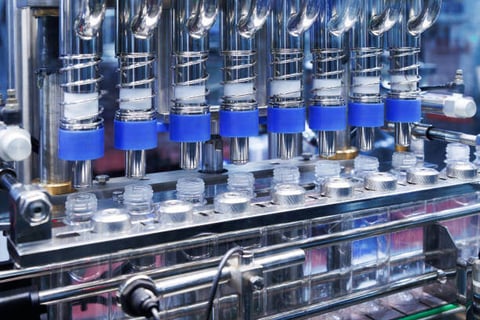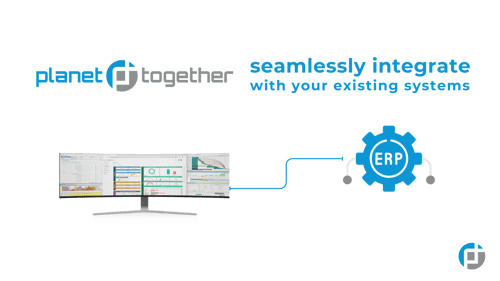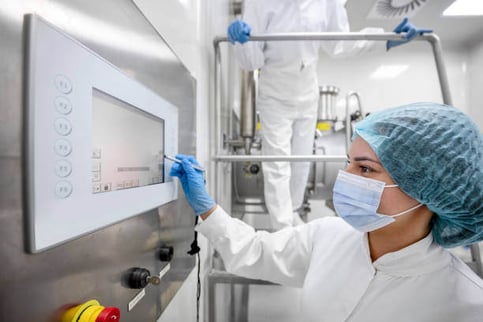Automation of Production Processes in Pharmaceutical Manufacturing: A New Era of Efficiency and Control
As a Plant Manager in a pharmaceutical manufacturing facility, you’re no stranger to the pressures of delivering precision, compliance, and efficiency all at once. Whether you're scaling up production to meet new demand, ensuring GMP compliance, or minimizing downtime, your role demands a careful balance between operational efficiency and uncompromising quality.
One of the most transformative shifts happening in pharmaceutical manufacturing today is the automation of production processes. Automation is not just a buzzword — it's an operational imperative that improves throughput, ensures consistent quality, and enhances traceability. With solutions like PlanetTogether Advanced Planning & Scheduling (APS) integrated into ERP systems like SAP, Oracle, Microsoft Dynamics, Kinaxis, or Aveva, plant managers can now orchestrate production with greater precision than ever before.
Let’s explore how automation is reshaping pharmaceutical production, what it means for plant managers like you, and how integrating your systems can create a more agile, reliable, and scalable operation.

The Need for Automation in Pharmaceutical Manufacturing
Pharmaceutical manufacturing is uniquely complex. You're working with regulated substances, high-mix production lines, stringent traceability requirements, and volatile demand patterns. Manual or semi-automated systems often struggle to keep pace with:
Frequent recipe and batch changes
Cleanroom scheduling and validation protocols
Equipment and operator constraints
Regulatory compliance (e.g., FDA, EMA)
Real-time quality assurance integration
Automation addresses these pain points by streamlining repetitive tasks, reducing the margin for error, and enabling advanced planning scenarios. It allows plant managers to proactively manage resources, shift priorities quickly, and ensure on-time delivery without compromising compliance or safety.
What Does Automation Really Mean?
Automation in this context refers to more than robotic arms or conveyor belts (though those have their place). It includes:
Advanced Planning and Scheduling (APS): Automating how and when production happens based on real-time data.
MES Integration: Connecting Manufacturing Execution Systems to real-time shop floor operations.
Predictive Maintenance: Using IoT sensors and AI to predict equipment failures before they occur.
Digital Batch Records (eBRs): Reducing paperwork and enhancing traceability with digital documentation.
Closed-loop Feedback Systems: Automatically adjusting production variables based on sensor input or process performance.
When orchestrated properly, automation touches every part of your manufacturing value chain — from raw material intake to final product packaging.

The Power of Integration: PlanetTogether + Your ERP System
At the heart of successful automation is integration — and this is where many manufacturers struggle. You might have a robust ERP system like SAP or Oracle handling procurement and finance, but production planning often remains a bottleneck.
Enter PlanetTogether APS.
PlanetTogether serves as the intelligent planning and scheduling layer that integrates seamlessly with your ERP, whether it’s SAP, Oracle, Microsoft Dynamics, Kinaxis, or Aveva. This integration allows real-time synchronization of:
Work orders
Bill of materials
Inventory levels
Equipment and personnel availability
Cleanroom constraints
Batch release timelines
By pulling and pushing data across systems automatically, PlanetTogether eliminates manual planning spreadsheets and makes your entire operation synchronized, agile, and responsive.

How Automation Supports Regulatory Compliance
In a regulated environment like pharmaceutical manufacturing, every automation step must support — not compromise — compliance. Automation through integrated systems helps plant managers:
Track and trace batches in real-time, ensuring full audit trails.
Enforce electronic signatures and access control through digital batch records.
Validate cleaning schedules and equipment usage with automated triggers.
Ensure version control for SOPs and production recipes.
These capabilities are not only important for internal audits but are essential for passing FDA or EMA inspections with confidence.
The Role of Human Operators in an Automated Facility
There’s a common misconception that automation sidelines your workforce. In reality, it empowers your team to focus on higher-value tasks — like monitoring exceptions, improving quality processes, and managing continuous improvement initiatives.
Operators are no longer reacting to issues; they’re proactively managing them. Supervisors are not chasing paperwork; they’re driving throughput. With systems like PlanetTogether providing real-time visibility, human decision-making becomes data-informed, not guesswork-driven.
Overcoming Common Barriers to Automation
Despite the clear advantages, automation in pharma still faces some resistance. Common concerns include:
“We’re too complex to automate.” In reality, the more complex your operation, the more you need automation.
“Integration takes too long.” PlanetTogether’s out-of-the-box connectors for SAP, Microsoft, and other systems significantly reduce integration time.
“It’s too expensive.” Automation is an investment — and ROI is typically seen within months due to reduced waste, increased capacity utilization, and fewer compliance issues.

Key Benefits for Plant Managers
Let’s summarize what automation — especially with integrated systems — delivers for you:
| Benefit | Impact on Your Plant |
|---|---|
| Shorter Lead Times | Faster delivery, improved customer satisfaction |
| Optimized Resource Use | Better use of rooms, equipment, and operators |
| Fewer Compliance Issues | Automated tracking, documentation, and QA |
| Reduced Downtime | Proactive maintenance and efficient changeovers |
| Real-Time Visibility | Live updates on production status and KPIs |
| Scalable Processes | Easier to scale up or pivot to new product lines |
As a Plant Manager, your mandate is clear: drive efficiency, ensure compliance, and meet production goals — often all at once. Automation, when combined with intelligent planning and integrated systems, becomes your strategic ally.
Whether you're already using SAP, Oracle, Microsoft, Kinaxis, or Aveva, PlanetTogether APS acts as the connective tissue that brings automation to life on your shop floor.
The result? A pharmaceutical facility that runs with precision, agility, and control — empowering you to focus on what matters most: delivering safe, high-quality products to the people who need them most.
Are you ready to take your manufacturing operations to the next level? Contact us today to learn more about how PlanetTogether can help you achieve your goals and drive success in your industry.
Topics: PlanetTogether Software, Shorter Lead Times, Integrating PlanetTogether, Reduced Downtime, Real-Time Visibility and Control, Pharmaceutical Manufacturing, Optimized Resource Use, Fewer Compliance Issues





















LEAVE A COMMENT